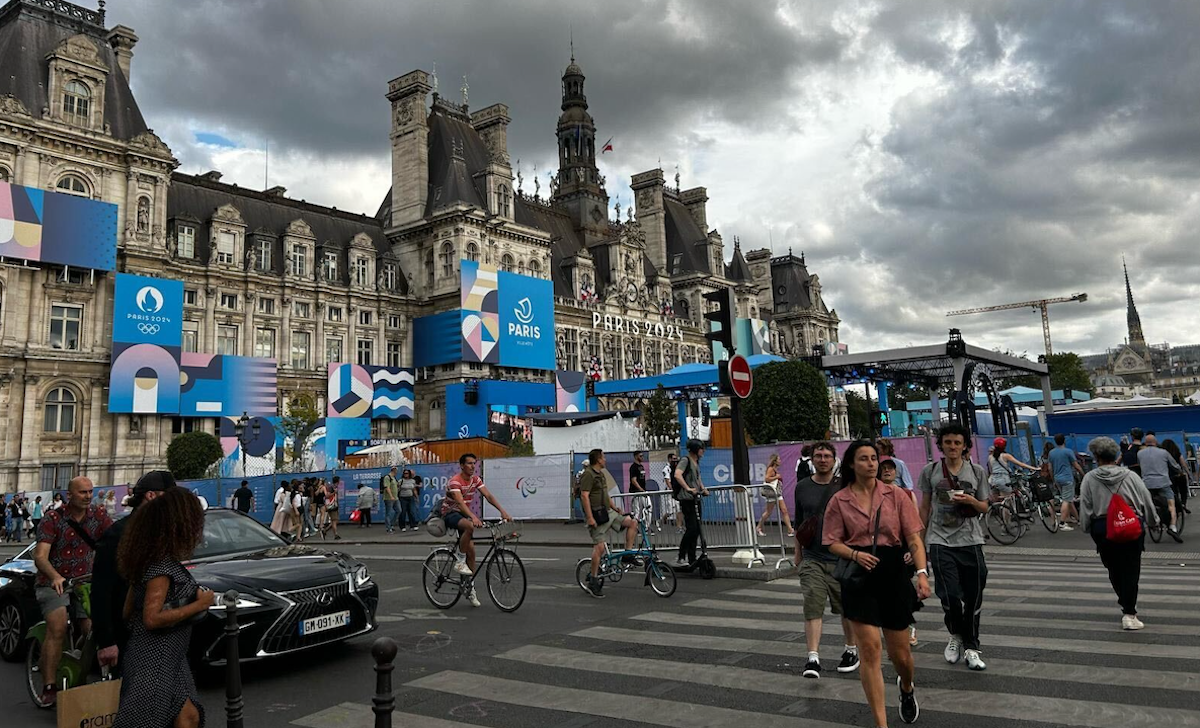July 25, 2024
100: On Friday, 100 boats carrying over 10,000 of the world’s top athletes will float down the River Seine in Paris to kick off the biggest global sporting event. For the first time in Olympic history, the opening ceremony will not be held inside a stadium — a decision that stirred plenty of controversy due to concerns about the river’s cleanliness. France invested $1.5 billion to clean up the river ahead of the Summer Games.
2-1: Morocco defeated Argentina 2-1 in the opening match of the Olympic football tournament on Wednesday, after Moroccan fans stormed the field to protest a goal by Argentina that tied the score. The game was suspended for nearly two hours before the goal was ruled offside and disallowed; play then resumed – in an empty stadium.
30: Russian-lawyer-turned-French-chef Kirill Griaznov wasarrested on Sunday and faces up to 30 years in jail for charges over an alleged Russian plot to destabilize France during the Olympics. In a raid on his apartment, documents were found linking the chef to Russia’s secret service organization, the FSB. Details first emerged two months ago based on a call French intelligence intercepted in which Griaznov reportedlytold a Russian intelligence agent, “The French are going to have an opening ceremony like there has never been before.”
70: Hundreds of thousands have traveled to Paris to watch and compete in the Olympic Games, but trade in the City of Love hasgone down by 70% this past week. Heavy security measures from the Louvre to Île-Saint-Louis have left many shops and monuments entirely inaccessible and other areas restricted to those granted a special QR code in advance.
More For You
Ian Bremmer sits down with former US Ambassador to NATO Ivo Daalder to unpack a historic shift in the transatlantic alliance: Europe is preparing to defend itself without its American safety net.
Most Popular
Think you know what's going on around the world? Here's your chance to prove it.
U.S President Donald Trump, U.S. Vice President JD Vance, and U.S. Secretary of State Marco Rubio pose for a family photo with other representatives participating in the inaugural Board of Peace meeting, at the U.S. Institute of Peace in Washington, D.C., U.S., February 19, 2026.
REUTERS/Kevin Lamarque
Argentina, Armenia, Belarus, Egypt, Indonesia, Jordan, Pakistan, Paraguay, Vietnam – to name only a few.
A poster featuring Andrew Mountbatten-Windsor, formerly known as Prince Andrew, is installed on a sign leading to the parking area of the Sandringham Estate in Wolferton, as pressure builds on him to give evidence after the U.S. Justice Department released more records tied to the late financier and convicted sex offender Jeffrey Epstein, in Norfolk, Britain, February 5, 2026.
REUTERS/Isabel Infantes
British police arrested former Prince Andrew Mountbatten-Windsor today over allegations that in 2010, when he was a UK trade envoy, he shared confidential government documents with convicted sex offender Jeffrey Epstein.
© 2025 GZERO Media. All Rights Reserved | A Eurasia Group media company.
